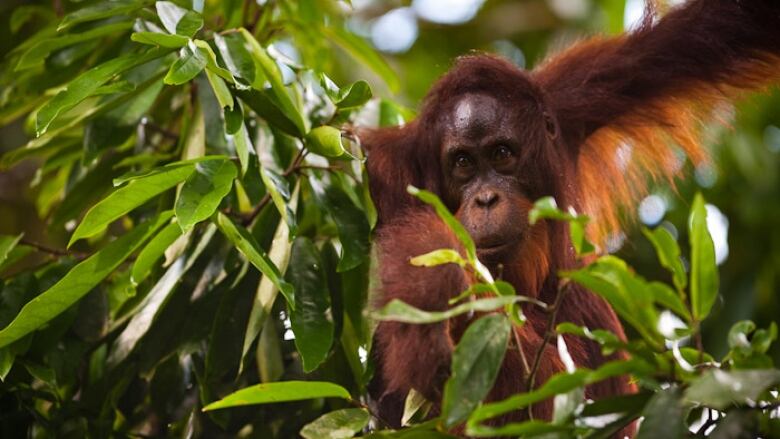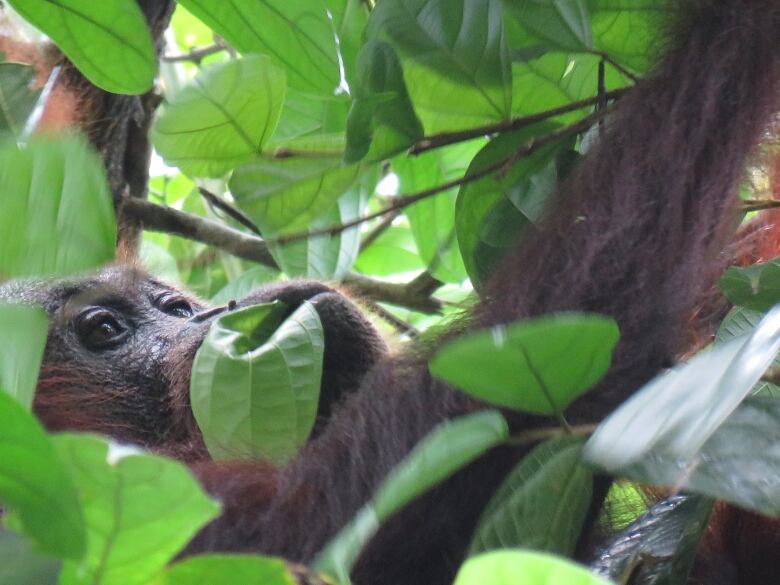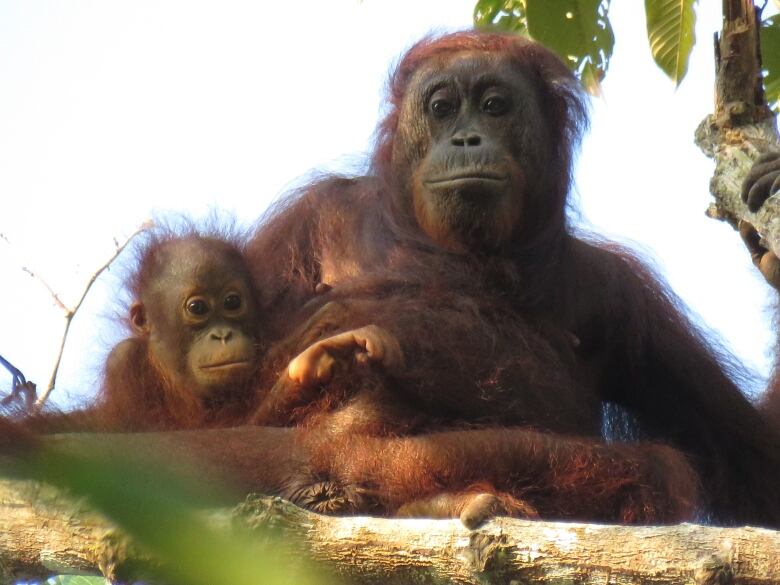Borneo's orangutans at risk of extinction after population decreases by 148,500 in 16 years
Experts say deforestation and hunting are two big reasons why

In 1973, roughly 75 per cent of Borneo, the world's third-largest island, was a canopied paradise. Towering trees, some stretching more than 90 metres into the sky, helped fuel a rich ecosystemand were home to more than 250,000 Bornean orangutans. Today, it is estimated that only 65,000 orangutansremain.
In a new study published in Current Biology, an international group of scientists, including York University's Anne Russon,suggest that from 1999 to 2015, Borneo lost roughly 148,500 orangutans in partas a result of fires, deforestation,logging, andland beingused to plant oil palm. They estimate that a further 45,300 will be lost by 2050 if these practices and problemscontinue at the current pace.
However, more than half of the orangutan population decrease since 1999 wasdue to hunting.
Add hunting's toll to the calculation and the prediction becomes muchmore dire, the researchers say.
"Orangutans will become effectively extinct within the next couple of decades if we don't stop our exploitation of their habitat and of orangutans directly (killings, trapping for sale in the illegal captive wildlife trade)," Russon, the study'sco-author,toldCBCin an email from her field site on the island.

Borneo is a tropical island in Southeast Asia that's made up of three countries: Malaysia, Brunei and Indonesia. It's home to rainforests and wildlife such as rhinoceroses, monkeys and pygmy elephants.
The data was collected from a variety ofresearch projects conducted over the 16-year period, studying a total 36,555 orangutan nests and covering 4,316 kilometres.
The researchersspent two years analyzing the data.
Lead author SergeWichofthe U.K.'s Liverpool JohnMooresUniversity said he was surprised by how many orangutans have been lost.
"I had a feeling that the numbers would be high, but I had not predicted that they would be this high. That was a shock."
He said much of the hunting has nothing to do with sport or trade. As forests decline, he said, orangutans are more likely to come into contact with humans. They may venture onto farmfields, where they are seen as a threat.
- Orangutan shot 130 times with air gun in 2nd Borneo killing of the year
- New orangutan species found in Indonesia
Many farmers also believe orangutans damage their crops. But Wichisn't convinced that's actually the case.
Orangutans are somewhat solitary animals, he said, so they only look for food to sustain themselves. While they may foragefor a fruit called durian, for example, they're unlikely to cause widespread crop damage as they have only one mouth to feed.

One potential solution, Wich said, would be for governmentstooffer compensation to farmers who believe they've suffered damage caused byorangutans. And teaching residents that they're not a dangerous animal could also help.
Another option would be to look at land planning. Orangutans are a "fairly flexible species," Wich said. They can live in many landscapes so long as there are forests nearby where they can nest.
Linked with humans
TheBorneanorangutan, which shares 97 per cent of our DNA,is listed as critically endangered on the International Union for Conservation of Nature's red list.
"For me, they are important because they are among our closest living biological relatives (along with chimpanzees, bonobos, and gorillas) together we are ALL great apes so we should respect their lives not massacre them,"co-author Anne Russonwrote to CBC."These species are also the only surviving non-human great apes, so the only living sources of information on humans' evolutionary past."

Wich said the animals also play an important role in fighting climate change.
Forests are considered carbon sinks. They absorb carbon and prevent it from building up in the atmosphere, which can exacerbate climate change. Primates help disperse seeds that createmore robust forests. Recent studies suggest primates are crucial to the health of forests and even economic development, though the role of tropical forests is still not well understood.
Wich said he's hopeful the world will not lose the Borneanorangutan.
"As grim as these numbers are, the fact thathunting is likely such an important factor means that, if we can tackle that single factor, we can make an enormous amount of progress in conserving this species."












_(720p).jpg)


 OFFICIAL HD MUSIC VIDEO.jpg)
.jpg)



























































































